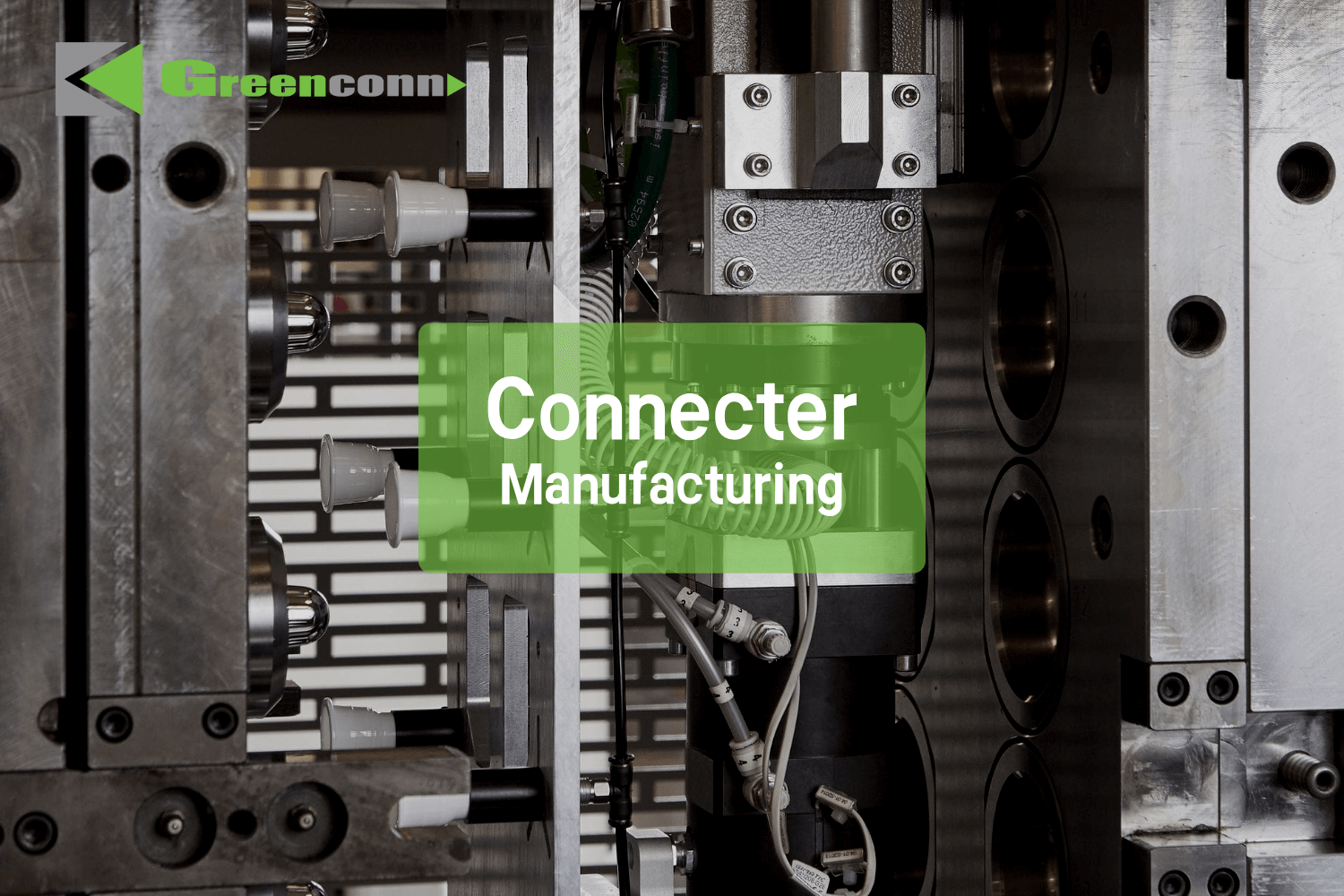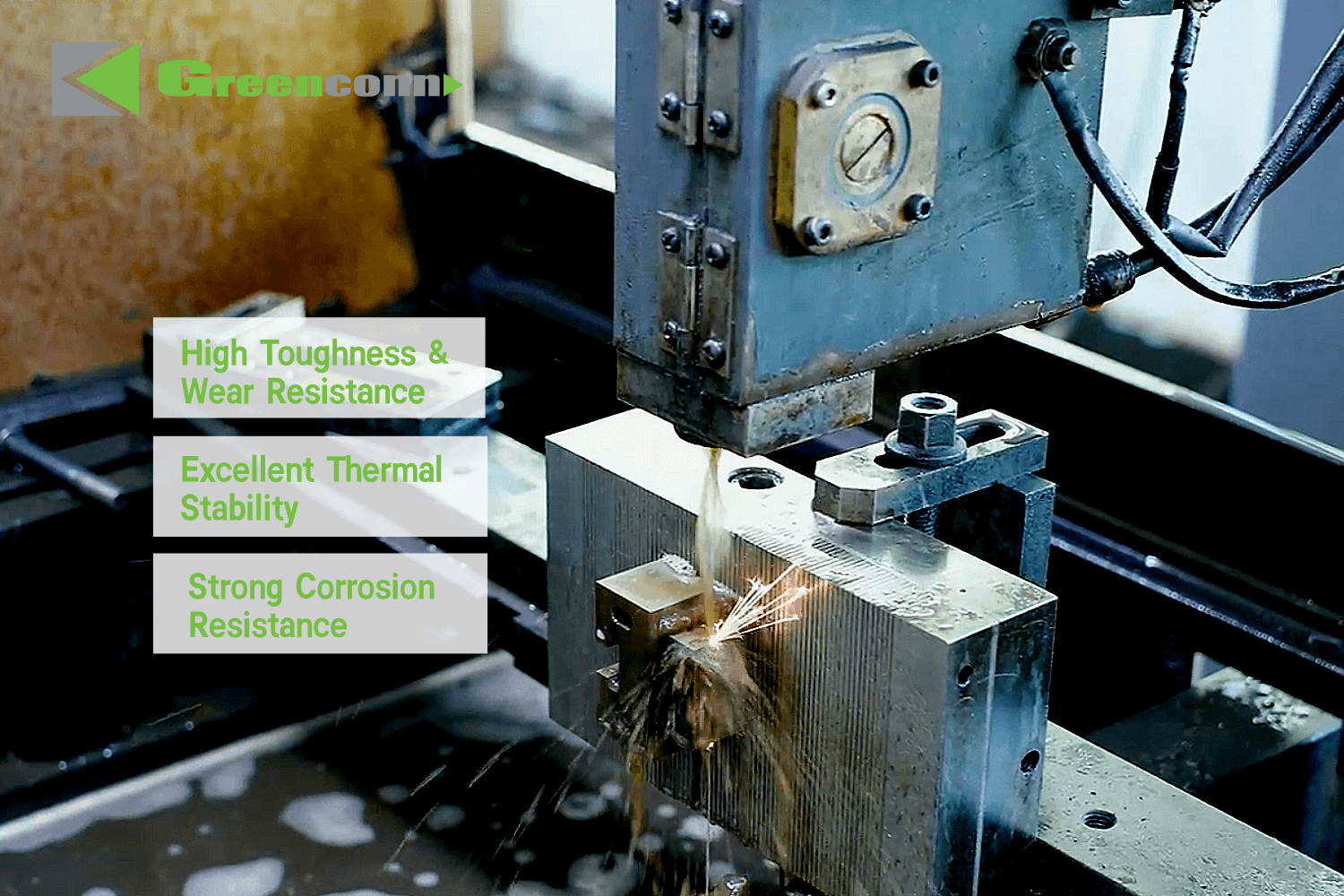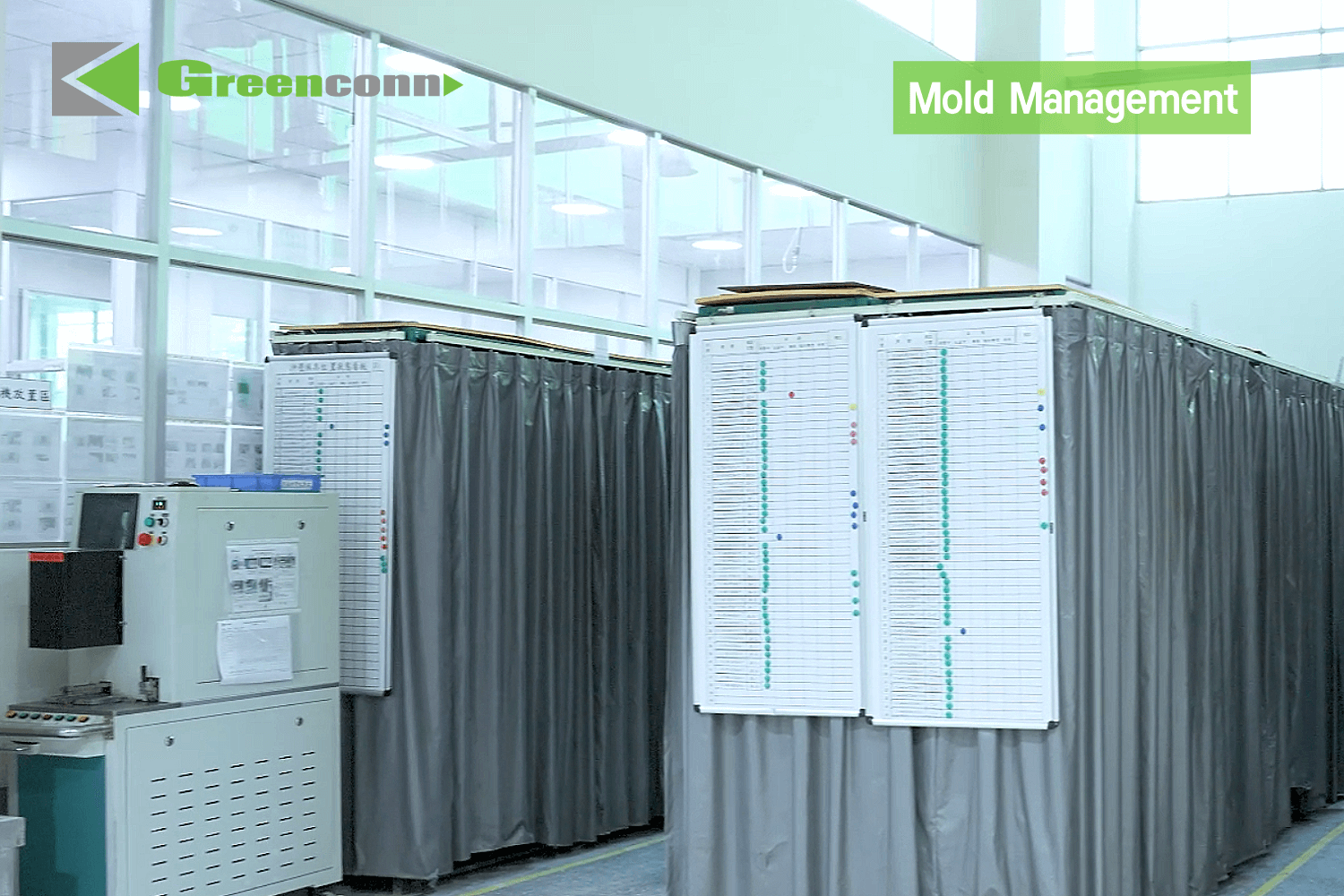Precision Mold Engineering for High-Reliability Connector Manufacturing
In connector production, molds are the core foundation that ensure product accuracy and consistency. Throughout stamping, injection molding, and automated assembly, tooling directly impacts the connector’s appearance, dimensional tolerances, and structural integrity. High-stability, high-durability, and highly reliable molds are therefore essential for maintaining mass-production quality.

With over 20 years of experience in connector manufacturing, Greenconn has established comprehensive capabilities in mold design and precision control—from requirements analysis and material selection to high-precision machining and lifecycle maintenance. Our dedicated mold engineering standards provide a strong technical backbone for high-precision connector production.
1. Precision Evaluation: Aligned with Application Requirements
Different connector types impose varying demands on tooling accuracy. Through cross-functional engineering reviews, Greenconn maximizes first-pass mold success and quality output.
1) Process Feasibility Review
We evaluate product application conditions—equipment environments, mating cycles, and mechanical durability—to define the optimal tooling process. For example, high-speed signal connectors and fine-pitch board-to-board connectors require extremely tight spacing and coaxiality control.
2) Mold Design
3D modeling and flow-simulation analysis allow us to identify dimensional risks early and reduce defects from the design source.
2. Material Engineering: Essential Safeguard for Longevity
Material selection determines long-term tooling reliability. Greenconn adopts premium VKING and SKD61 tool steels to withstand high loads, strong injection pressure, and thermal shock.
1) High toughness & wear resistance
After heat treatment, hardness reaches 52–58 HRC to prevent deformation and abrasion during high-frequency operation.
2) Excellent thermal stability
Stress-relieving and soft annealing processes greatly reduce distortion, cracking, and thermal-fatigue risks—ensuring dimensional consistency.
3) Strong corrosion resistance
Annual corrosion rate ≤ 0.05 mm. Resistant to corrosive gases released during molding to protect tooling precision.

3. Precision Machining: ±0.005mm High Accuracy Control
Advanced machining technology is key to achieving extreme precision and surface quality.
1) High-accuracy machining
CNC and EDM processes enable 2 μm machining capability and tolerance control within ±0.005 mm—ensuring exact structural consistency.
2) Surface Treatments
Coatings such as TiN reduce friction to 0.15 and increase cutting speeds by 20%, significantly improving anti-wear properties and demolding performance.
4. Full Lifecycle Maintenance: Built for Long-Term Stability
High-precision tooling must not only be built well—but maintained well. Greenconn implements standardized maintenance to safeguard stable mass production.
1) Mold testing & optimization
Injection trials analyze short shots, flash, sink marks, etc. We fine-tune gate and runner structures to optimize air venting, filling performance, and demolding.
2) Preventive maintenance system
Our digital mold-management system monitors wear in slider and lifter mechanisms to prevent failures, minimize downtime, and secure production continuity.

(Greenconn mold-management system)
5. Continuous Innovation: Enabling High-Reliability Manufacturing
Mold engineering is the “source of accuracy” in connector manufacturing. Only with full-process control—design, materials, machining, and lifecycle management—can precision and reliability be assured.
As 5G deployments, intelligent automotive systems, and compact medical devices accelerate miniaturization, connectors are evolving toward finer pitch, more complex structures, and higher functional integration—demanding even more from mold engineering.
Greenconn continuously invests in R&D and advanced manufacturing technology, including high-efficiency multi-cavity molds and upgraded precision machining. We ensure consistent quality at the source to support customers in meeting the challenges of next-generation manufacturing.



